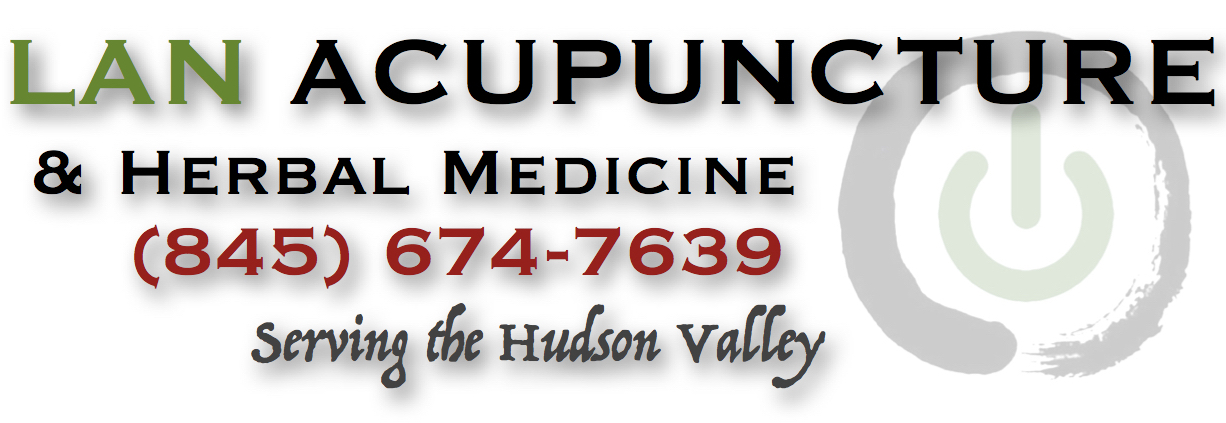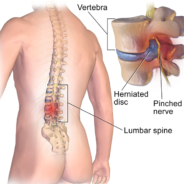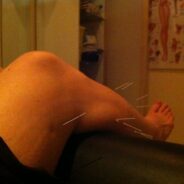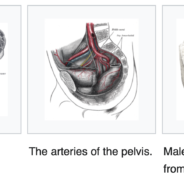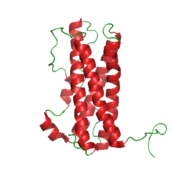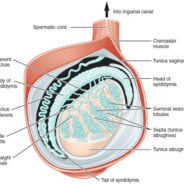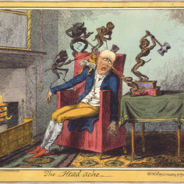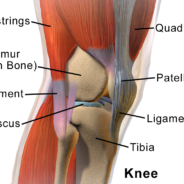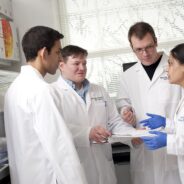How does acupuncture work from a biomedical perspective?
As methods of scientific inquiry have progressed, the mechanisms of acupuncture are beginning to be more clearly understood. While the mechanisms can get quite complex, ultimately acupuncture is a remarkably simple technique that depends entirely upon one thing: the stimulation of the peripheral nervous system.
Broadly speaking, acupuncture
- relieves pain.
- reduces inflammation.
- restores homeostasis.
Homeostasis refers to the body’s ability to regulate its environment and maintain internal balance. All diseases involve a disturbance of homeostasis, and nearly all diseases involve some degree of pain and inflammation. In fact, research suggests that many serious conditions such as heart disease previously thought to have other causes are in fact primarily caused by chronic inflammation. If we understand that most diseases are characterized by pain, inflammation and disturbance of homeostasis, we begin to understand why acupuncture can be effective for so many conditions.
The following is a list of mechanisms that have been identified so far:
- Acupuncture promotes blood flow. This is significant because everything the body needs to heal is in the blood, including oxygen, nutrients we absorb from food, immune substances, hormones, analgesics (painkillers) and anti-inflammatories. Restoring proper blood flow is vital to promoting and maintaining health. For example if blood flow is diminished by as little as 3% in the breast area cancer may develop. Blood flow decreases as we age and can be impacted by trauma, injuries and certain diseases. Acupuncture has been shown to increase blood flow and vasodilation in several regions of the body, and is the only treatment shown to increase blood flow to the uterus.
- Acupuncture stimulates the body’s built-in healing mechanisms. Acupuncture creates “micro traumas” that stimulate the body’s ability to spontaneously heal injuries to the tissue through nervous, immune and endocrine system activation. As the body heals the micro traumas induced by acupuncture, it also heals any surrounding tissue damage left over from old injuries.
- Acupuncture releases natural painkillers. Inserting a needle sends a signal through the nervous system to the brain, where chemicals such as endorphins, norepinephrine and enkephalin are released. Some of these substances are 10-200 times more potent than morphine!
- Acupuncture reduces both the intensity and perception of chronic pain. It does this through a process called “descending control normalization”, which involves the serotonergic nervous system.
- Acupuncture relaxes shortened muscles. This in turn releases pressure on joint structures and nerves, and promotes blood flow.
- Acupuncture reduces stress. This is perhaps the most important systemic effect of acupuncture. Recent research suggests that acupuncture stimulates the release of oxytocin, a hormone and signaling substance that regulates the parasympathetic nervous system. You’ve probably heard of the “fight-or-flight” response that is governed by the sympathetic nervous system. The parasympathetic nervous system has been called the “rest-and-digest” or “calm-and-connect” system, and in many ways is the opposite of the sympathetic system. Recent research has implicated impaired parasympathetic function in a wide range of autoimmune diseases, including arthritis, lupus, rheumatoid arthritis and inflammatory bowel disease.
Several other mechanisms have been identified, but the ones I’ve listed above are the most relevant and clearly understood. When you consider that the Chinese made these discoveries hundreds of years B.C., acupuncture is even more impressive.
Some purists object to acupuncture being described in biomedical terms. They feel that such descriptions are reductionistic and don’t take into account those aspects of acupuncture that we may not yet understand. While it is true that we don’t yet fully understand how acupuncture works, we should aim to provide each patient with the latest medical understanding available in terms they can understand and relate to. Doing this will improve open the door for acupuncture to be integrated into the healthcare system, which is needed now more than ever.
Laith Naayem L.Ac., MSOM
Licensed Acupuncturist
New Windsor NY
(845) 674-7639
Post-Covid Loss of Taste and Smell
Acupuncture demonstrates clinical efficacy for postviral recovery from the loss of the sense of smell. COVID-19 (coronavirus) patients often experience diminished olfaction, with a median return of the senses of taste and smell within eight days. However, long-term impacts on both gustation (tasting) and olfaction have been reported in COVID-19 cases. Research on acupuncture’s ability to benefit the restoration of olfaction indicates that it is a potentially effective treatment modality for Read more...
read moreLumbar Disc Herniation Pain Reduction
Acupuncture reduces pain and inflammation for patients with lumbar disc herniations. Kaifeng People's Hospital researchers compared warm needle acupuncture with standard acupuncture. Warm needle acupuncture reduced serum levels of proinflammatory biochemicals more effectively than standard acupuncture. In addition, warm needle acupuncture was more effective at reducing overall pain levels and restoring daily function. Before and after treatment, patients’ serum levels of TXB2, TNF-α, and Read more...
read morePain Relief After Knee Surgery
Acupuncture is an effective postoperative analgesic treatment modality. First Hospital of Haerbin Medical University researchers compared drug analgesia with electroacupuncture for postoperative total knee arthroplasty patients. Electroacupuncture produced better outcomes regarding downregulation of serum prostaglandin E2 levels and upregulation of β-endorphin levels. The researchers commented that low-frequency pulsed current (LFPC) transferred to the body via electroacupuncture was instrumental Read more...
read moreDepression Reduction, and Enhancement of SSRI Performance
Acupuncture is effective for the treatment of depression. Guangzhou First People’s Hospital (affiliated with Guangzhou Medical University) researchers compared SSRI (serotonin reuptake inhibitor) monotherapy with SSRI plus electroacupuncture therapy. The data driven results determined that the combined therapy increases the rate of positive patient outcomes. The integrated therapy group received the identical SSRI medication (escitalopram) as the drugs only group. Subjective and objective data Read more...
read moreProstatitis Relief
Acupuncture alleviates prostatitis and reduces relapse rates. Jiujiang Hospital of Traditional Chinese Medicine researchers compared usual pharmaceutical treatment with acupuncture. The results show that acupuncture promotes local blood circulation, improves urethra and bladder function, and alleviates overall symptoms correlated with prostatitis. Drug therapy produced significant results and limited the relapse rate to 10%. In an important discovery, acupuncture reduced the relapse rate to 3%, Read more...
read moreFertility and Hyperprolactinemia (HPL)
Acupuncture produces a higher rate of pregnancies than fertility medications with significantly less adverse effects. In a controlled clinical trial, researchers document that acupuncture outperforms bromocriptine and bromocriptine plus clomiphene for the treatment of infertility for women with hyperprolactinemia (HPL). Acupuncture produced a 43.3% pregnancy rate whereas fertility medications produced 20% pregnancy rate. Prolactin Protein Molecule One important mechanism responsible for the Read more...
read moreAcupuncture & Herbs For Epididymitis
Acupuncture and herbs are effective for the treatment of chronic epididymitis, a condition characterized by testicular tube inflammation. Symptoms include local pain and swelling. Researchers conclude that a combination of acupuncture and Tian Tai Wu Yao San Chinese medicine herbal formula provides relief from chronic epididymitis and is superior to conventional antibiotic treatment. The findings were confirmed by Xi’an Medical School Affiliated Baoji Hospital (Shanxi, China) researchers using Read more...
read moreMigraine Headaches
Acupuncture is a cost-effective and safe treatment modality for the alleviation or elimination of migraine headaches. Harvard Medical School, Georgetown University, University of Arizona, Creighton University, and Louisiana State University researchers report findings showing that acupuncture reduces the frequency, intensity, and duration of migraine attacks. The investigation team indicates that patients receiving acupuncture are also less prone to secondary anxiety attacks and depression. Globally, Read more...
read moreKnee Pain and Fibromyalgia
Acupuncture is effective for the treatment of knee osteoarthritis, low back pain, and fibromyalgia. Tufts University School of Medicine (Boston, Massachusetts) researchers conducted a meta-analysis of 16 medical reviews and 11 randomized controlled clinical trials and determined that acupuncture is safe and effective for the treatment of these conditions. They add that there is considerable evidence that acupuncture produces pain relieving effects by stimulating nerves that trigger the body’s Read more...
read moreCurrent Research
Acupuncture research definitively proves that it is an effective treatment modality, especially for pain relief. This has been augmented by contributions from Georgetown University, Harvard Medical School, Tufts University, Emory University, University of California, and other prestigious institutions. In addition, endorsements from the American Academy of Physicians and inclusion within the USA Medicare system have added to both the acceptance and access to acupuncture. Medicare picked up acupuncture Read more...
read more